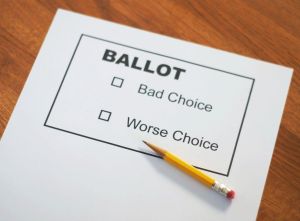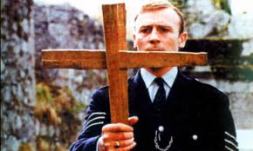A selection of articles written for websites…
Politics is boring. Every child instinctively knows this. Teachers, parents and other adults will try their best to get children interested in politics. But it’s an uphill battle.
When I was at primary school we had a ‘mock election’. Children were asked to think up a range of policies; those with the best policies would be candidates in a school election.
I put myself forward for election but my heart wasn’t in it. I was more interested in ghosts, stories and computer games. I had one policy idea, which was really an idea given to me by my parents. My big ‘idea’ was that food packaging should show information about ingredients as law. As you can tell, this was all too long ago when people didn’t even know if sugar was in a food, never mind how much sugar was in it.
To cut the story short, the teachers could probably tell that my heart wasn’t in it. I got through to stage two, but in the end other children won their place as candidates with better ideas. Being a politician wasn’t for me. But I did learn that people tended to vote for their friends and that politics is often more about popularity than policy.
Politics is boring – but it is also powerful. The truth is that children’s lives are hugely influenced by Government whether we like it or not. From the quality of a school through to the computer games a child often loves to play, the Government has an influence.
It takes a very intelligent child to understand that this strange, often cruel, world of politics is the sphere in which things can get changed. When a child questions why there is war or why there are homeless people, they are taking their first tentative steps into the world of politics.
But there are some children who do get involved in this world.
The UK Youth Parliament was formed in 2000 and consists of children from the ages of 11 to 18. The managing organisation is the British Youth Council. There are currently 600 members. Each member is elected to represent the views of children in their area. Half a million 11-18 year olds vote in the elections every two years. And all 11–18 year olds are entitled to vote.
The youth parliament has a manifesto which is shown to the Government as being the view of young people on various issues. They meet together to hold debates and even gather at the Houses of Parliament.
There are a number of issues which recur in this ‘children’s manifesto’. Environmental issues are often high on the agenda, along with child poverty, bullying, lowering the voting age and public transport.
Marc Kidson, is from the British Youth Council Chair, and is keen for more young people to get involved and make a difference. He said: “In the last few years we have seen record-breaking turnouts from young voters in their teens electing their own representatives in local youth councils, as young mayors and as members of the Youth Parliament.
“Last month, the UKYP’s nationwide ballot reached nearly half a million young people, evidence that far from being apathetic, there is a surge in democratic engagement.
“Young people ourselves are challenging the stereotypes that label us as ‘uninterested’ and ‘ignorant’ and that are used to dismiss us from political debate.
“In return we want to see our political leaders responding directly to the issues the Youth Parliament raises. If you want us to buy-in to democracy, you need to talk to us, not about us,” he added.
Politics often isn’t interesting enough to satisfy most people; parents and children included. The UK youth manifesto is a little more radical than that of the adult counterparts, but whether the adult party counterparts will listen to this call for more interesting policies remains to be seen.
For more information about the UK Youth Parliament click here.
Elderjuice Website

Gardening simply has to be a talent. Some people must be born for it. And I don’t just mean Monty Don and Alan Titchmarsh, I mean the people who persevere and manage to turn their gardens into something beautiful.
Unfortunately I’m not one of them. For a start I’m colour blind – I can’t tell which flowers are colour coordinated. I was given some roses yesterday called ‘Twice in a blue moon’. “Are they actually blue?” I asked naively.
‘The gardening elite would despair’
And I have no idea about what is fashionable in a garden – why would anyone want to put an uprooted tree stump as a garden feature, for example? The gardening elite would despair of me and perhaps give me a copy of Amateur Gardening before shaking their heads sadly and moving on.
Don’t get me wrong, I can watch a gardening programme and appreciate a good garden – a quiet space in which noise and chaos are held at bay. And I like being shown around people’s gardens. But gardening myself? I don’t think so.
Not that anyone understands my lack of gardening talent. People continually give me gardening books to read, in the hope that the goodness from the books might fertilise my fingers through osmosis.
The only one who understands this is my wife: “No disrespect,” she says, “but you know nothing about gardening.” Anything good in our garden is down to her.
Bamboo(zled)
Last summer I cleared a wild patch at the top of the garden to make room for a shed. I chopped down small ash trees (which felt like a kind of murder); I dug up weeds and tried to pull up entire root systems.
It eventually got done, but it took me an entire summer to do it. If anybody had seen me trying to pull up tree roots by hand before falling over backwards they would have laughed.
Then there was the bamboo. Some bamboo was growing unexpectedly across the lawn. No-one told me that bamboo roots travel in lines. So I pulled up half of the lawn.
Mass drowning of the ants
And how are you supposed to deal with ant nests anyway? Pouring water on them felt like a kind of genocide. The ants had to go though. Because of ‘ant-guilt’, a man-made insect nest was placed in the garden. Even insects now keep away.
Although I have non-green fingers, I have many more jobs left on my gardening to-do list. Herbs need to be planted, we need some kind of archway and edging has to be done.
The problem is that the survivors in the garden now look at me warily. If I was born to garden the plants would look at me with admiration and whisper words of praise and approval (as they must do towards Monty and Alan).
I’m definitely not born to garden. Perhaps I’ll just go to the shed with a paper instead.
AGCAS Prospects Website
Options with your subject: Journalism
Case studies
- Freelance journalist: Sam Hailes
FAQs
- Can I still use my university careers service two years after graduation?
- What can I do after my degree?
Most students who study journalism understand that it is a fiercely competitive field, but fewer realise that the skills gained through their degree are useful in various alternative occupations…
Job options
Jobs directly related to your degree include:
- Broadcast journalist
- Editorial assistant
- Magazine journalist
- Newspaper journalist
- Press sub-editor
- Publishing copy-editor/proofreader
Jobs where your degree would be useful include:
- Advertising copywriter
- Information officer
- Market researcher
- Multimedia specialist
- Public relations officer
- Writer

Remember that many employers accept applications from graduates with any degree subject, so don’t restrict your thinking to the jobs listed here. Login to My Prospects to find out what jobs would suit me, a helpful starting-point for self-analysis. Also explore types of jobs.
Work experience
If your aim is to work directly within journalism, it is important to build up a portfolio of work and gain as much relevant experience as possible. Working on a student newspaper or radio station can be extremely useful.
You can gain valuable work experience by contacting TV production studios, radio outlets, magazines and newspapers. Writing voluntarily for websites, print publications or other media outlets is also a good way of adding to your portfolio and displaying your skills.
Search for placements and find out more about work experience and internships.
Typical employers
Employers from many different sectors will hire journalism graduates. These employers include media companies, PR consultancies, communications agencies, charities and marketing organisations. Other common employers include the Civil Service and further and higher education institutions such as colleges and universities.
Opportunities can be found through a number of methods, including jobsites, networking and speculative applications.
Find information on employers in media and publishing, marketing, advertising and PR, and other job sectors.
Skills for your CV
A journalism degree provides you with transferable skills that are highly valued by many employers. Your specific skills will include:
- critical analysis;
- a flexible, creative and independent approach to tasks;
- the ability to meet deadlines; and
- the ability to communicate information effectively and clearly.
Journalism students also gain strong research skills for sustained independent enquiry and are able to express ideas and information in written, oral or other forms. The ability to listen and to work productively in a team are also crucial skills which can be used in a variety of occupations.
Further study
Postgraduate courses and media training are popular with journalism graduates. For those determined to pursue journalism, a relevant training course accredited by the National Council for the Training of Journalists (NCTJ) is highly desirable to media sector employers. But it is important to note that journalism students will often look at other further study options, such as studying for a teaching qualification.
When deciding what to study, consider your career plan, academic interests and the degree you have taken. Successful completion of a course does not guarantee entry into any particular area of work but it will enhance your skills and increase your chances of employment.
For more information on further study and to find a course that interests you, see postgraduate study in the UK and search courses and research.
What do journalism graduates do?
The vast majority of journalism graduates find employment outside journalism and the media. Other related employment options include marketing, sales, market research or public relations.
Six months after graduation, around 70% of journalism graduates are in full or part-time employment and around 9% continue studying or training.
Over a quarter of those in employment find jobs in the arts, design, culture and sports professions, while over 10% are in marketing, sales, and advertising. Just under a quarter work as retail, catering, waiting and bar staff.
Of those who are studying, around a third go on to do a higher degree.
Find out what other graduates are doing six months after finishing their degrees in What Do Graduates Do?
Graduate destinations data from the Higher Education Statistics Agency, 2011 survey.
Echurch Websites
Christians in Films
It’s a familiar story – you’ve had a difficult day, it seems as if the whole world is against you and you need to unwind. You decide to relax in front of the TV and watch a film. During the film a character enters a scene. This character is a mean-spirited, smug, self-righteous, judgmental stereotype of a Christian. You go to bed feeling worse than ever and wonder what people think of you.
The portrayal of Christians through Hollywood and the rest of the film industry is a curious mix. Before the end of the 60’s, believers were shown in a relatively favourable light. In more recent years there have been both positive and negative Christian characters on the screen. However, there is still a dearth of Christian heroes and heroines.
Heroes
In 1938 a film called Angels with Dirty Faces came out. It was a success with cinema goers and featured a New York thug turned priest named Jerry Connolly. He isn’t the hero (that is James Cagney), but he is a main character and is presented as a tough, loving believer concerned about the problems in his community.
Believers were treated kindly in Bible adaptations (via the disciples). Even some of the main characters were Christians in these earlier films. In the film version of Les Miserables (1952), for example, Jean Valjean has a conversion experience and defies all Christian stereotype with his benevolence.
Then, a year later in The Robe Richard Burton’s Marcellus Gallio is the slave who accepts Christ. And once again he is the hero of the film.
Moving on to the classic film On the Waterfront (1954), dock worker Terry Malloy (played by Marlon Brando) finds support in a waterfront priest named Father Barry against a corrupt union leadership.
Villains
But there were also some Christian villains around. Night of the Hunter (1955) heralded the arrival of ‘the evil preacher’. Harry Powell (played by Robert Mitchum) is a Bible-quoting baddie with a disturbing personality. Villainous preachers like this were to appear in many later films. In fact Christian leaders were to get most of the flak.
Bad press
Before the end of the 1960’s Christians didn’t get too bad a press through Hollywood. An entire glut of films seemed to feature largely positive Christian characters. But during that period, the National Council of Churches abandoned their Hollywood offices because of financial problems. Some say this even resulted in the decline of good morals in movies.
Sam Engel, one-time head of 20th Century Fox once commented on this and said: “If you take the salt from the meat, the meat’s going to rot.”
It would be unfair to suggest that this was the only reason for a decline in positive Christian characters. But the fact is that many of the older films showed Christians in a kinder light than today.
Horror
The British film The Wicker Man (1973) does have a Christian hero (in policeman Neil Howie (Edward Woodward)). But he is shown as totally naive to the conspiracy all around him. Horror films usually revel in the idea of the Christian villain.
Maybe Tarantino’s From Dusk Till Dawn (1996) could be said to have a different kind of Christian in the lapsed pastor ‘Jacob’. And in The Omen films (beginning from 1976) at least the Christians were the goodies.
Biopics
Bucking this trend, and perhaps simply because they are based on real people, biopics of believers are often positive.
The Hiding Place(1975) is not a mainstream film but it shows Corrie Ten Boom as having an active faith (something which is often played down in mainstream movies).
Many Christians love the film Chariots of Fire (1981) in which Olympic runner Eric Liddell (Ian Charleson) is the hero who makes a stand for what he believes in. “When I run I feel His pleasure,” he says memorably.
Shadowlands (1993) caused controversy for apparently showing C.S.Lewis almost losing his faith entirely. But on the whole it is a realistic love story in which C.S. Lewis is literally surprised by Joy.
And Johnny Cash in Walk the Line (2005) defies all Christian stereotype through his music. He even dresses well.

There are a few other films with positive Christian characters. But there are also a lot of films in which believers become clichés and are not very realistic.
Turning Christians into figures of fun is something we are used to by now. The Life of Brian ((1979) has no Christian characters in it but Monty Python’s The Meaning of Life (1983) shows stereotypical Catholics and Protestants. The Catholics have far too many children and the Protestants over the road look down on them judgmentally.
The Simpsons Movie (2007) features the nightmarishly clichéd Ned Flanders. A badly dressed cartoon character who is surely a figure of ridicule.
The Christian hypocrite is a particular favourite of Hollywood. Doubt (2008) has a character named Father Flynn as a villain (but, to be fair, Sister Aloysius (Meryl Streep) is a nun who exposes his hypocrisy).
Dan Brown
The Da Vinci Code (2006) has yet another baddie in ‘Silas’, a monk who is violent and self flagellating. The Catholic group, Opus Dei (along with many others) were not happy with this film. On their website, the real Opus Dei say: “We want to point out that The Da Vinci Code’s depiction of Opus Dei is inaccurate, both in the overall impression and in many details.”
The Vatican commented on Dan Brown’s sequel Angels and Demons (2009). In the Vatican’s newspaper ‘L’Osservatore Romano’, there was a review of the film. It said the film was full of stereotypical characters but conceded: “The theme is always the same: a sect versus the church. This time the church is on the side of the good guys.”
Director Ron Howard defended his movie: “In Angels and Demons; Professor Robert Langdon teams up with the Catholic Church to thwart a vicious attack against the Vatican. What exactly, is anti-Catholic about that?”
In this film the church is under attack from a secret society called the illuminati. Ewan McGregor’s character ‘The Camerlengo’ appears at first to be softly spoken, thoughtful and even heroic. But it turns out he is in fact anachronistic, anti-science and murderous. The Swiss Guard come out of it looking good though.
There are numerous other films in which Christian characters are shown negatively. These days there are a lack of realistic heroes and heroines who are also believers. And positive story characters can do wonders for any minority.
But as ‘The Camerlengo’ from Angels and Demons says:
“Our church is at war. We are under attack from an old enemy.”
And yes, you may get the feeling that it isn’t just the Illuminati.



